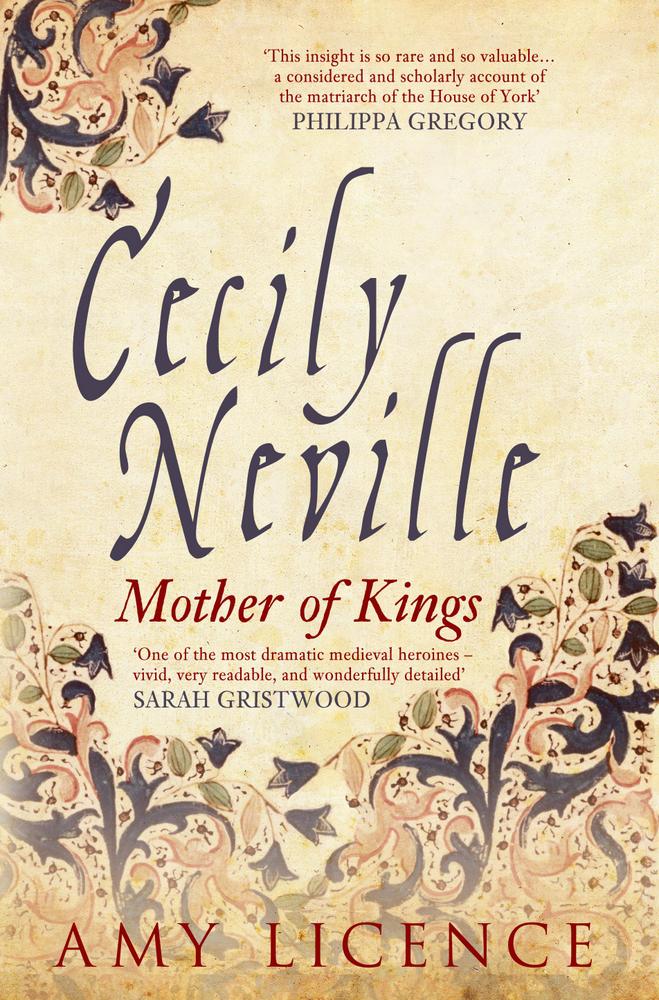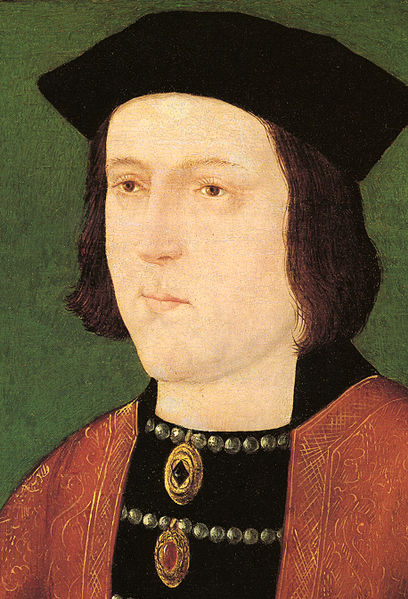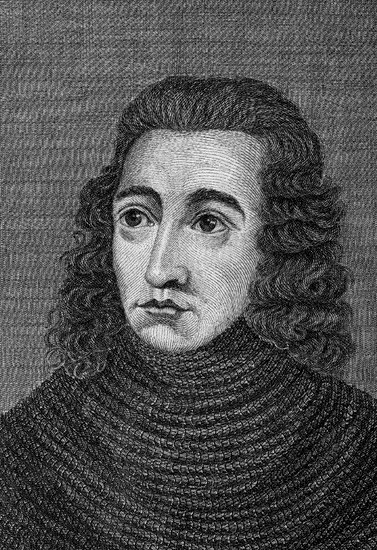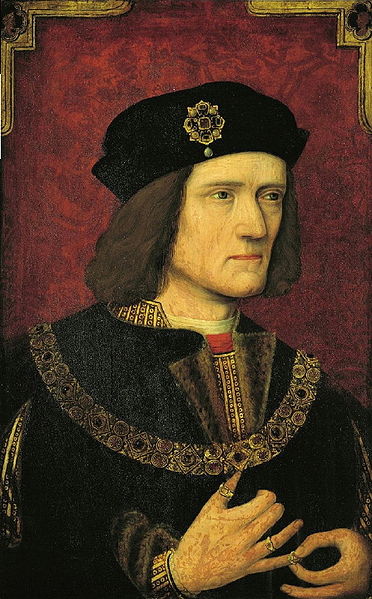
We have a lingering image of Cecily Neville, “The Rose of Raby”, “Proud Cis”, the beautiful, imperious and powerful Duchess of York. She was not only the mother of two kings, she was grandmother of one of the most beloved queens in English history and great-grandmother of the future King of England and Queens of Scotland and France. She outlived her husband and all of her sons, saw the House of York fall and her granddaughter take the throne of the new Tudor dynasty. If it was family that was important to the Duchess of York, it is her family that encompasses her legacy.
Cecily Neville Mother of Kings explores the woman behind the regal facade; from her formative years, her marriage and her children, to the death of her last son and her retirement from court life, it is an absorbing account of one of the most remarkable women of the middle ages. Historian Amy Licence joins us to discuss Cecily Neville and her sons, Edward IV, George Duke of Clarence and Richard III.
You said that Cecily Neville is particularly remembered today for her motherhood and piety. Edward IV appointed her his representative in London in his absence just after he won the throne, what do you think this level of trust says about the relationship Cecily had with her children?
Yes, this is a very interesting episode. Obviously, Edward trusted her a great deal and after York’s death, the previous December, she had to step into a parental and advisory role that he may have filled until then. This was the confirmation that Cecily was fit to rule, as her appellation of “Queen by rights” suggests and, I suspect, it was the pinnacle of her achievement, the high point of her life, when she could rule in her son’s absence at a very exciting time. It was a bitter sweet moment though, without York at her side, and it didn’t last long. She was the leading lady of the land, but soon Edward’s secret marriage would complicate that dynamic.

You’ve discussed the rumour that Edward IV was illegitimate at length, but what do you think is the most decisive factor that shows he was the true-born son of Richard Duke of York?
Apart from the fact that none of the reputed evidence hangs together, I was most convinced by York’s own attitude. When Edward was a small child, in 1444-5, York entered negotiations with the French King, Charles VII, to arrange a marriage between the boy and Princess Madeleine. There would have been no question of this taking place if there were any doubts at the time about Edward’s legitimacy. I wasn’t aware of this before I started researching, but it seems to be quite decisive to me. As you say, I discuss this at length in the book because I’ve read so much rubbish about it and cases being built on assumptions about the length of pregnancies etc which simply aren’t true.
Do you think Cecily may have been inadvertently responsible for George Duke of Clarence and the Earl of Warwick using the illegitimacy rumour against Edward later on?
It is possible, although the degree of her involvement is not clear. The rumours appear to have begun as part of the Warwick-Clarence rebellion of 1469, when Cecily accompanied them down to Sandwich, before they disembarked for Calais. There are a number of possible interpretations of that; perhaps she was giving her consent to their actions or, maybe, she was trying to dissuade them. Ultimately, Cecily’s aim was to further the house of York’s claim to the throne. I suspect she would have done anything within her power to do so, although that power was limited, so had to be exercised in a family context, rather than a political one. The situation in 1469 pitched her sons against each other though, so it is a difficult one to judge, but if she believed at that moment, that the claim about Edward’s legitimacy- and the slur cast on her own reputation- was in the best interest of her bloodline, I think she would have gone with it. She knew her personal reputation was a small factor in a wider picture and could understood the political game: just as people changed sides, she might claim one thing in 1469, then later denounce it, if it was expedient to do so. She may have done so inadvertently but there is also a chance that it was deliberate. That just makes her a shrewd player, using the limited tools available to women in a man’s world.

While George was given his own household and responsibilities at a young age, and spent his formative years out of his mother’s influence, she managed to intervene and help reconcile him with his brother Edward, with the help of her daughters. Do you think Cecily was particularly influential in bringing George back into the family fold?
Yes, I do. Along with her daughters, she did invite Edward and George to a reunion in her house. I think most mothers would attempt to resolve such a significant breach between their children, but also in the recognition that they were striving towards the same goal, the continuing ascendancy of the house of York. I can picture her urging them to reconcile and citing their father’s name. However, I’m not sure how successful she would have been, had George not already had doubts about his involvement with Warwick, I think he was pretty much determined to follow his own path, and she was unable to help him in 1477/8.
Where do you think the notion that George was Cecily’s favourite son comes from?
It seems to stem partly from the belief that she supported his rebellion, which people have inferred from her presence in Sandwich, but her actual motives are not known to us. It is likely that she did plead for his life, but that’s fairly understandable. In terms of historical fact, we have no evidence of favouritism. In terms of historical fiction, it makes for a more interesting family dynamic, and a more exciting story.
How supportive do you think Cecily may have been in Richard III’s deposition of his nephew?
I really don’t know about this. When we consider that she was being forced to choose between a son and a grandson, we can’t help but see this through modern eyes, with all the associations we give to family roles. If we replace the concept of family with that of dynasty, I think we may come closer to what happened. It seems heartless to us to suggest Cecily abandoned her grandsons, but she may have done so without a full understanding of the implications of her actions for those boys’ lives. For her, it would have been better to have her adult son on the throne, rather than a minor who would have been more influenced by his Wydeville relatives than her. If she had disapproved of Edward’s marriage, this situation would have brought those feelings to the surface again. She may have backed Richard, or at least not opposed him, as families did fragment and divide into lines, which we see from her own relationships with her siblings. I wonder if the events of 1483-5 were the catalyst that led her to retire from court life? Equally there is the possibility that she was encouraging Richard every step of the way, to ensure the continuance of her dynastic line. That would have made Richard’s son Edward heir to the throne, and Edward was, after all, the son of a Neville, and Cecily’s great-great nephew as well as her grandson. That made him pure Neville, rather than half Wydeville.
 I think Cecily must have felt she had lost her influence over both Edward and George in the end, do you think perhaps she wanted to try and do better, so to speak, with her last remaining son Richard?
I think Cecily must have felt she had lost her influence over both Edward and George in the end, do you think perhaps she wanted to try and do better, so to speak, with her last remaining son Richard?
It’s possible. Once her sons had grown up and married, it was inevitable that her influence would be lessened. There is a letter that survives in which she mentions that Edward had visited her recently but Richard hadn’t, and she encourages him to come and see her. Richard was her youngest surviving child too and once Edward and George were dead, they may have been closer, or at least shared a sense of their lost past and heritage. I think there is a sense of Richard carrying the baton for the house of York, which is something she would have supported.
It was Cecily’s own granddaughter, Elizabeth of York, that established the new Tudor Dynasty with Henry Tudor. Cecily left her great-grandson Prince Arthur a rather remarkable item, what do you think of the significance of the bed hangings decorated with the image of the Wheel of Fortune?
The Wheel of Fortune is a very poignant symbol for Arthur, with the hindsight we have. In 1495 though, I’m not sure that the bequest had much real significance beyond the literal interpretation of the fickleness of fortune, which was such a common medieval motif and often incorporated into poetry, fine and applied art. It was so much a part of their psyche, that it may not have been intended as a warning or lesson. Quite possibly, it was selected for its material value or beauty, as much as its message. She could equally have left him bed hangings bearing the royal arms, or Adam and Eve, or the labours of Hercules. So far as Cecily knew, Arthur was going to be England’s King and, having witnessed the fluctuating luck of her sons on the throne, she may have left him a symbol of that, or was just leaving him an item suitable for a monarch.
Your next book is about Cecily’s youngest great-grandson, Henry VIII and his wives. Can you tell us a bit about it?
Yes, it’s the story of Henry’s women; his wives and mistresses. I’m always interested in the female experience and the lives of these women include all the key issues regarding women’s lives in the sixteenth century; widowhood, dependence, marriage, sex, fertility, motherhood, religion, divorce, adultery, illegitimacy etc I’m really trying to tell it from their point of view, rather than letting it become another narrative about Henry.
With thanks to Amberley Publishing
Read an excerpt from Cecily Neville: Mother of Kings.
To win a copy of Cecily Neville: Mother of Kings just leave a comment below by midnight Monday 12th May.
You have ten chances to win a copy of one of Amy Licence’s Wars of the Roses series on her blog tour, courtesy of Amberley Publishing including Elizabeth of York The Forgotten Tudor Queen, Anne Neville: Richard III’s Tragic Queen, Richard III: the Road to Leicester and Cecily Neville: Mother of Kings. Here are the rest of the stops on Amy’s blog tour:
Saturday 3 May: On the Tudor Trail- Retracing the steps of Anne Boleyn will host an extract from ‘Cecily Neville: Mother of Kings’.
Sunday 4 May: Queen Anne Boleyn Historical Writers – Queenanneboleyn.com will host an extract from ‘Anne Neville’.
Monday 5 May: Anne Boleyn: From Queen to History will host an extract from ‘Elizabeth of York’.
Tuesday 6 May: theroyalfirm.com will be posting a Q & A with Amy about her ‘Richard III: the Road to Leicester’ book.
Wednesday 7 May: The Anne Boleyn Files will host an extract from ‘Elizabeth of York’.
Thursday 8 May: Nerdalicious has a copy of ‘Cecily Neville: Mother of Kings’, to give away, an interview with Amy and an excerpt from her new book.
Friday 9 May: www.anneboleynbook.co.uk/ will host an extract from ‘Anne Neville’.
Saturday 10 May: On the Tudor Trail will hosting again, this time sharing Amy’s answers to ’20 questions’.
Sunday 11 May: Tudor Book Blog will be hosting an extract from ‘Richard III: the Road to Leicester’.
Monday 12 May: tudorhistory.org/blog/ will host an extract from ‘Elizabeth of York’.
 Visit Amy Licence at His Story Her Story
Visit Amy Licence at His Story Her Story
Amy Licence on Twitter @PrufrocksPeach
Amy Licence Facebook Fan Page In Bed With the Tudors
Writing about medieval and Tudor history, with a particular interest in women’s lives and experiences. I’m the author of four books and have also written for The Guardian, BBC History website, The New Statesman, The Huffington Post, The English Review and The London Magazine. I appeared in a BBC2 documentary “The Real White Queen and her Rivals” and have been interviewed numerous times live on radio. I’ve also been shortlisted twice for the Asham Award for women’s short fiction.

Cecily Neville Mother of Kings by Amy Licence. Published by Amberley Publishing 2014.
Buy Cecily Neville Mother of Kings. Free worldwide shipping at Book Depository.
Known to be proud, regal and beautiful, Cecily Neville was born in the year of the great English victory at Agincourt and survived long enough to witness the arrival of the future Henry VIII, her great-grandson. Her life spanned most of the fifteenth century. Cecily’s marriage to Richard, Duke of York, was successful, even happy, and she travelled with him wherever his career dictated, bearing his children in England, Ireland and France, including the future Edward IV and Richard III. What was the substance behind her claim to be ‘queen by right’? Would she indeed have made a good queen during these turbulent times? One of a huge family herself, Cecily would see two of her sons become kings of England but the struggles that tore apart the Houses of Lancaster and York also turned brother against brother. Cecily’s life cannot have been easy. Images of her dripping in jewels and holding her own alternative ‘court’ might belie the terrible heartache of seeing her descendants destroy each other. In attempting to be the family peacemaker, she frequently had to make heart-wrenching choices, yet these did not destroy her. She battled on, outliving her husband, friends, rivals and most of her children, to become one of the era’s great survivors.



